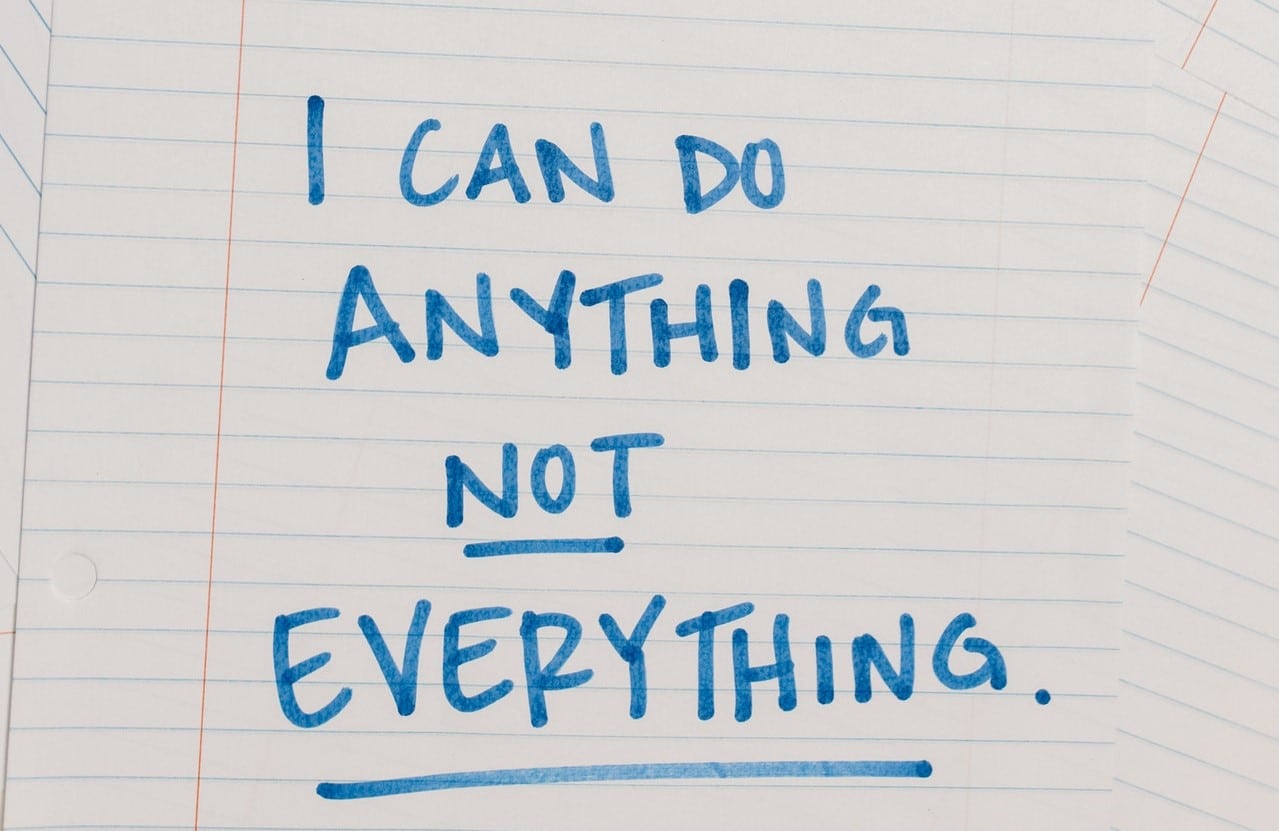The end of the year is usually the time of stock-taking. We reflect on what we have achieved this year and whether there is a need for a radical change. The work usually is one of the main topics of these reflections.
Dynamism, flexibility, prompt reaction, and multitasking are the keys to success in the modern world, especially in IT. Outstanding achievements and high and rapidly growing earnings are expected from workers in this area. Burnout, as a result, is one of the main problems in the modern IT sector.
Job burnout. Reasons, signs, ways to get rid of
Job burnout isn’t a medical diagnosis. This specific type of stress, related to work, is a combination of sensations and conditions. It includes emotional or physical exhaustion and a sense of loss of personal identity, and reduced accomplishment.
How to identify burnout
Job burnout is not something to be neglected. This condition should make you wary because it can escalate into severe physical and mental health problems. Although obvious reasons can cause job burnout, it’s usually hard to spot. Check the points below to be able to identify the possible job burnout:
- Cynical or critical attitude at work
- Trouble going to work and getting started
- Irritation or impatience with co-workers, customers, or clients
- Dropping efficiency and performance at work
- Loss of concentration and failure to focus
- No satisfaction from your achievements
- Changes in sleeping habits
- Unexplained headaches, stomach problems, or other physical complaints
Do you have any of these signs? If the answer is positive, you might be experiencing job burnout. Consider talking to a doctor or a mental health provider to avoid significant consequences.
Possible causes of job burnout
What are the possible causes of job burnout? Knowing the answer, you could prevent yourself from getting this condition and avoid more significant problems in the future.
Lack of control
It’s always irritating and disappointing when you’re unable to influence decisions that affect your job. E.g., you’re not in control of your schedule, assignments, or workload or lack the resources you need to do your work.
Uncertain job expectations
One can hardly feel comfortable at work if his\her degree of authority or supervisor’s or colleagues’ expectations are unclear.
Defective workplace dynamics
Having an office bully as a colleague or a micromanager as a boss can contribute to job stress.
Activity excesses
Either a monotonous or chaotic job requires constant energy to stay focused. This is a straightforward way to fatigue and job burnout.
Lack of social support
Isolation at work or in your personal life is another decisive stress factor.
Work-life imbalance
Do you spend so much time and effort on work that you have no energy left to pay enough attention to your family and friends? Be careful, as you might burn out quickly, keeping this up.
We advise you to discuss this situation with your employer. An adequate boss who values his employees will be open to finding options to fix the problem to mutual satisfaction. Here in Optimum Web, we are sure that only a professional with a good work-life balance can be efficient and productive. We see the motivation of our employees not to commit themselves entirely to work as a part of our mission.
Is work-life balance more important than salary?
The significance of the work-life balance is constantly increasing. Many are confident that it is more important than salary. In their race for top talent, the companies respect their employees’ personal time as a decisive argument.
According to the Fidelity Investments study, more than half of modern job seekers consider the improved quality of life at work more important than financial benefits when evaluating a job offer. And this is not surprising given what they have to deal with.
Almost everyone nowadays faces a challenge to complete his\her full-time work, let alone raise the family and run a side project. Moreover, employees are increasingly thinking about the fortunes carried upon boomers. They discovered that retirement is further off and much less paid than expected, although their loyalty and best working years were given to their employers. This makes modern job-seekers look for careers, reflecting their understanding of the purpose and enabling them to integrate work with personal life.
What is a good work-life balance?
Everyone understands the work-life balance differently. This can be either traveling while working full time or a flexible schedule.
Work-life balance means that you can get all your work done while carrying out assignments, staying healthy, having rest, and spending enough time with family. Work-life balance doesn’t mean an equal number of hours devoted to each of your numerous work and personal activities. There is no perfect balance you should be pursuing. Your best individual work-life balance will modify over time, even every day.
How do you calculate work balance?
How do you calculate work-life balance? Can it be measured at all? Is there an instrument that shows whether you have a balance of the time spent on your work and personal life? The best tool invented so far is a self-check questionnaire or a work-life balance survey. Its main goal is to help you evaluate:
- the amount of time you spend on your professional and personal activities
- the level of your satisfaction with the result.
The questionnaire helps you assess your performance in the individual, organizational, social, and other aspects of your life. The high individual aspects score means you can balance professional and personal activities.
The companies using this method focus on provisioning flexible working conditions instead of personal development and individual interference. They know that balance is achieved when one feels fulfilled both at work and in their lifestyle. As a result, their employees’ level of satisfaction with their careers and commitment to work is constantly growing.
Why is work-life balance more important than salary?
More and more modern employees value their personal life and the opportunity to realize themselves not only as professionals but also as family members. They no longer want to devote all their time to work.
Is the extra reward for overworking worth the evenings not spent with your family or for your favorite hobby that delights and soothes you? No salary is worth neglecting your family’s happiness, your mental health, and inner harmony.
External circumstances can change at any moment, and your personality will remain with you, and it depends only on you how whole and strong it will be. The formation of such a personality is based on material and spiritual grounds.
How to improve your work-life balance
You’ve already made sure the work-life balance is perhaps the most important part of the adult’s life. Now let’s figure out how to improve your work-life balance and start with its main component – the work-work balance.
The balance between work and life can be achieved only after you obtain the balance between your and your company’s needs. For example, neither exclusively promotion and recognition are your main goals, nor only the company’s mission fulfillment.
Considering this, let’s first understand the details of work-work balance from both your employer’s and your perspectives.
Your company’s expectations towards you:
- Knowledge and performance
- Engagement and commitment
- Innovation and effort
- Time and balance
Your expectations towards your company:
- Recognition and compensation
- Promotion and appreciation
- Collaboration and communication
- Time and balance
With that in mind, the further move is to define your values and priorities and evaluate their impact on your balance. We suggest assigning them points from 0 to 10, with 0 representing the least amount of satisfaction it gives you. Now it’s time to use the formula Your total / 140 x 100 = Work-work balance (%) its result reflecting your current job engagement. If the result doesn’t satisfy you, it’s high time to change something. Here’s what your possible actions could be in this case:
- Change the company you work for or your carrier.
- Tell your boss about your concerns.
- Discuss the reasons for controversy on this issue and find a suitable way for you both. Remember that your and your company’s definition of work-work balance can differ.
Most often, the option of dismissing and changing jobs is far from the best in such a situation, even if you are offered a larger salary. You’d better first define the reasons for your burnout and consider whether raising your paycheck will help you find a work-life balance.
Moving to another big project means you have to waste your energy on gaining credibility from scratch in a new team and getting used to new processes. A bigger salary means the company has high expectations of you. Isn’t the race for money and the abundance of tasks beyond your reach one of the factors that cause you to burn out?
Let’s check your options to professionally and successfully communicate your need for balance at work to your boss and solve the situation for the benefit of both parties.
How to talk to your boss about burnout
- Objectively evaluate your soft and hard skills and create a clear gap-closing plan. Thorough research in your industry could help you with the matter.
- Determine your goal for getting the balance.
- Find a mentor.
- Proactively collaborate with him over a plan to help you reach your goal.
- Search for creative solutions with the desired result (work-life balance) in mind.
- Share your plans and goals with your boss and the team.
7 tips for better work-life balance
Check the tips below we picked up to help you reach a better work-life balance.
- Accept that the ‘perfect’ work-life balance doesn’t exist
A super-productive short day at work and plenty of time left to spend it with your family and friends may seem perfect. However, this is rarely possible, so we advise striving for a realistic schedule instead of an ideal one. Shift your focus from work to hobbies day after day over time, depending on your current needs. Thus you will achieve the desired balance in the long run.
- Find a job you love
Noone can be happy if he hates what he’s doing. Look for a job, that is exciting enough to motivate you to get out of bed every morning. The best variant would be to find a job you are so passionate about you would do it for free.
- Put your health in priority
Remember that your mood, daily productivity, and performance depend primarily on your health. Making it your primary concern makes you a better employee and person. Don’t overwork yourself, and don’t neglect taking rest and seeking medical help when the need arises.
- Don’t be afraid to unplug
Give yourself occasional breaks to recover from the daily or weekly stress. Getting distracted from work can give you space for other thoughts and ideas to arise.
- Take a vacation
Always take your long break when you need some time off to physically and mentally recharge. Don’t worry about the backlog of work that will wait for you when you return. The tasks that previously seemed unbearable are easy-to-solve after a good rest. A well-rested person is much more productive.
- Make time for yourself and your loved ones
Your job, albeit important, shouldn’t replace your entire life. Plan time with your loved ones, as your family is the source from which you draw the power for work. Ensure that you spend quality time with them without work-life conflict.
- Set boundaries and work hours
Set specific work hours and notify your team about the boundaries. Avoid thinking about upcoming projects and work emails when you leave the office. Consider having a separate computer or phone for work, so you can shut it off when your work hours end.
How much money would workers give up for a better work-life balance?
When it comes to work-life balance, time is money. So how much money would workers give up for a better work-life balance?
A survey by Joblist shows that the average US worker is inclined to give up his\her personal time for an extra $10,000 in pay per year. But here we are talking about people who claim they have a work-life balance.
However, the employees, lacking clear personal and professional boundaries and looking for better flexibility, don’t rate it that high. They said they’d give up between $1,710 to $2,820 to achieve it. This is mainly because the workers without balance might not know how much they’re missing out on.
“It would be tough for people who currently enjoy a balanced lifestyle to give it up,” the leading Joblist researcher Corie Colliton says. This demonstrates how important flexibility is to professionals who’ve had the chance to see its impacts on their lives.




